AUGUSTA — Days from now, many young Mainers are preparing to vote in a national election for the first time.
Reproductive rights, climate change and equality are among the top issues driving some of those voters who were interviewed this week at Maine college campuses. Those issues were also cited by students as key considerations in the hotly contested presidential race between Vice President Kamala Harris, a Democrat, and former President Donald Trump, a Republican.
Maine routinely tallies some of the highest voter turnout rates in the country. In 2022, at 61.8% Maine had the highest voter turnout as a percentage of voting population, according to the Maine Secretary of State’s Office, which oversees elections in Maine.
Maine’s youth also turns out in high numbers. The Center for Information Research on Civic Learning and Engagement at Tufts – a leading national research center on youth voting – looked at youth voter turnout and found that during the 2022 midterm elections, Michigan had the highest youth turnout rate at 37%, followed closely by Maine, Minnesota and Oregon, which each had a turnout rate of 36%.
A recent study by the Institute of Politics at Harvard Kennedy School found that young Americans strongly favor Harris over Trump in the presidential race, by 28 points among likely voters under age 30. The study also said young voters’ decision to cast a ballot may depend more on whether their friends are participating than with their own politics.

Cassandra Paul, a first-year student from Clinton studying criminal justice at Thomas College, is shown Thursday at the Waterville campus. Hannah Kaufman/Morning Sentinel
Cassandra Paul, a first-year student from Clinton studying criminal justice at Thomas College in Waterville, said she was planning to vote but didn’t have a strong reason for going to the polls.
“Just to know what it feels like to vote, for once,” Paul said when interviewed on campus Thursday. “I’m not much into politics. I kind of just go off especially what my close people say, like my dad, my friends and stuff. But (I’m voting) more of just – because why not?”
Here’s what young voters across other Maine college campuses said when asked this week whether they planned to vote in Tuesday’s election, and why.
COLBY COLLEGE
Lydia Riddell, 23, of Vermont, is voting in Waterville this year for the first time, saying she plans to vote for Harris because she agrees with many of the Democrat’s stances.
“I am voting because I care about reproductive justice, equal rights for everyone, and general human decency. I think Harris is the better choice because she has experience in all three branches of government,” she said.
Riddell believes that everyone should vote because it is their civic duty. “I think every vote matters. I struggle with the Electoral College and issues with gerrymandering, so I can see why some people think their vote doesn’t matter, but I think every vote counts. People have a civic duty to vote, especially in this election cycle, where we are voting to preserve democracy.
Ivan Knoepflmacher, 23, of New York, said he is voting for Harris.
“It is my civic duty to vote,” Knoepflmacher said, “and I’m voting for Kamala because I don’t think America can handle another four years of Donald Trump.”

Gavyn Tower, a fourth-year student from Rockland studying criminal justice at Thomas College, is shown Thursday at the Waterville campus. Hannah Kaufman/Morning Sentinel
THOMAS COLLEGE
Jean Catala, a second-year student from Puerto Rico, said he might vote one day, but not this year.
“I’m just not into politics, to be honest. I mean, I know what’s going on around, but I’m just not into it,” Catala said.
Gavyn Tower, a fourth-year student from Rockland studying criminal justice, said he will be voting on Tuesday to exercise his basic rights.
“I feel like voting is one of our civil duties and it has to be done,” Tower said.

Finley Owens is seen Thursday at the University of Maine at Augusta’s main campus in Augusta. Joe Phelan/Kennebec Journal
UNIVERSITY OF MAINE AT AUGUSTA
Finley Owens, 20, is not a Maine resident and said she isn’t voting in the election, but if she could, she would vote for the issue of health care.
“I like the idea of being in charge of my own healthcare, not some crusty politician. They can be in charge when they are the ones paying my (healthcare) bills,” Owens said.
Levi, a 30-year-old student from Augusta who did not want to give his last name, said he is not voting.
“I will not vote unless it’s a candidate that I feel good about. I’m not one to vote based on a party,” he said.
BATES COLLEGE
Maia Seigerman, a junior from Larchmont, New York, is studying environmental science and psychology at Bates College in Lewiston and said she chose to cast her ballot two weeks ahead of Election Day because she had “a lot of stuff piling up that week.”
“Voting is very important for every American citizen in order to be involved in the politics and important matters in the country,” she said.

Bates College junior Maia Seigerman, shown Friday at the Lewiston campus, says she has already voted. A woman’s right to choose concerning medical issues is important to the environmental studies and psychology major. Daryn Slover/Sun Journal
Seigerman’s decision to vote was based on a woman’s right to bodily autonomy.
“There’s a lot of issues at stake. Both candidates have covered them to a certain extent and have certain policies that I disagree or agree with. But the right to choose was the most clear one that I could see a difference between the two candidates,” Seigerman said. “That helped me make my decision.”
“As a country, I think we need to do better in terms of our bipartisanship because we’re very divided over political issues,” Seigerman added. “In order to make change or to create any positive outcome in anything political, we need to work together because you can’t have 50% of the country decide on one thing if the other half doesn’t want it.”
John Farrell, a sophomore at Bates, mailed in his ballot two weeks ago to Houston, Texas, where he is registered to vote.

Bates College sophomore John Farrell, shown Friday on the Lewiston campus, says he voted absentee since he is registered to vote in his hometown of Houston, Texas. Climate change is an important issue for Farrell. Daryn Slover/Sun Journal
“I think everyone should vote and exercise that right. There’s really low voter participation in this country. I encourage everyone to vote,” Farrell, 19, said. Climate change was what further inspired him to do his civil duty by voting. “Climate change is a big issue for me.”
Maitri Niles, 20, said she is planning to vote on Election Day. Niles, who is from New York, said this is her first presidential election. She wants to begin a lifetime tradition of voting for the president every four years.

Bates College sophomore Maitri Niles, shown Friday at the Lewiston campus, says she is a bit scared about her future and she does not care for Republican presidential candidate Donald Trump. Daryn Slover/Sun Journal
“I just really don’t like Donald Trump. I think in 2016 I was very vocal, but I was also 12 years old, so it didn’t really matter,” Niles said. “I’m just excited that I have a chance to vote this time.”
Ahead of Election Day, Niles is skeptical about the future.
“I am very scared about my future, which is not very comforting. I don’t necessarily know that I’ll be able to afford a house when I’m older,” Niles said. “I’m thinking about the children I want in the future, what their life is going to look like, the changes in climate change … just worried about the future.”

Bates College freshman Raymond Li, from the country of China, is not an American citizen and will not be able to vote on Tuesday. Li, shown on the Lewiston campus on Friday, said he is still very much aware of the political climate in the United States. Daryn Slover/Sun Journal
As an international student from Shanghai, Raymond Li is not eligible to vote in U.S. elections. This has given him a chance to observe his peers’ approach instead. He said most people he encounters seem apolitical.
To Li, many Mainers’ attitude toward voting seems old-fashioned.
“In Lewiston in particular, I feel like people here enjoy themselves like people did like a hundred years ago. It’s a very chill place in the sense that people don’t really know or care about politics. They have like a mechanism to prevent politics from interfering (in) their lives,” Li said.
CENTRAL MAINE COMMUNITY COLLEGE
Illyana Heggeman, 18, said she chose to vote early, on the Friday before Election Day. This is her first time voting.
“It’s one of those things that I wanted to experience it and see what it was like,” said Heggeman, who is from Auburn.
“I’m part of the LGBTQ community. Equality is huge for me. I don’t like rights being taken away from people. That’s why I vote. To protect our rights,” Heggeman said.

Central Maine Community College student Illyana Heggeman of Auburn, seen Friday on the Auburn campus, says LGBTQ+ issues are on her mind this election season. Daryn Slover/Sun Journal
Lamar James, 20, who is from Turner, said he feels strongly about several issues.
“I’m pro-choice. I think women should have the right to their body,” James said. “We should really focus on stuff that’s happening in the country, like helping people get housing, cleaning up the homeless problem, helping veterans get the help they need. I really think we should focus on a lot of in-house stuff and not focus on the out-house stuff. The border needs to be cleaned up a little bit because there’s a lot going on.”

Central Maine Community College student Lamar James of Turner is seen Friday on the Auburn campus. Daryn Slover/Sun Journal
Marnye Harris, 20, decided to vote in favor of bodily autonomy rights as well.
“I’m LGBTQI+, and I’ve been hearing since I was very young about rights being taken away,” said Harris, who is from Mill Creek, Washington. “They’re trying to restrict (abortion) so people who have been raped can’t get abortions if they need it. I’ve had friends who almost died while they were pregnant because they couldn’t get an abortion.”
UNIVERSITY OF SOUTHERN MAINE
Nell Anthony, a master of public health student who is voting absentee in Boothbay, said she feels a lot of human rights are at stake in this election.

Nell Anthony, 28, of Boothbay, a University of Southern Maine student, stands outside a resident hall Friday on the Portland campus. Ben McCanna/Portland Press Herald
“I’m afraid if Trump is elected, women are going to become far more marginalized and disempowered than we have in a long time,” Anthony, 28, said. “I’m afraid immigrants are going to lose their rights, and that the EPA is going to be taken apart. I’m afraid we’re going to lose a lot of the good environmental work that (President Joe) Biden has put in.”
Madison Raymond, 30, has lived in Portland for eight years and is returning to school after leaving for many years for work.
“There’s a lot of anxiety around the election in younger students here. I remember when I first came to USM in 2015, there was a lot of election anxiety when I was in my early 20s,” the Augusta native said. “So, it’s kind of hilarious for me to look back now at 30 and go “wow, the kids are still dealing with this election anxiety around Donald Trump.”
Raymond is planning to vote for Harris and Democrats down the ballot, including Portland City Council candidates Wes Pelletier and Grayson Lookner.

Madison Raymond, 30, of Portland, a University of Southern Maine student, sits Friday at a dining hall on the Portland campus. Ben McCanna/Portland Press Herald
Meghan Przybilla, 19, voted absentee in her hometown of Minneapolis, Minnesota. The mechanical engineering major said women’s rights and abortion rights motivated her the most this cycle.
“A lot of the people I surround myself with I think have similar values,” she said.
Anna Schaeffer, a 28-year-old school psychology major who lives in South Portland, said she voted early on Thursday for Harris.
“I hope she wins, and I am scared if she doesn’t,” she said. “But you never know. It’s such a coin toss.”
Schaeffer also took a controversial stance on a state ballot measure: a new Maine state flag.
“I think this is probably my hottest take, I voted against the new flag,” she said. “It’s so cartoonish, it just looks like a T-shirt design to me.”

AJ Jeanty, 22, of New Hampshire is an IT student at the University of Southern Maine. Jeanty says he was not planning to vote in the upcoming election because he doesn’t feel strongly about either presidential candidate. Ben McCanna/Portland Press Herald
Some are not voting, including AJ Jeanty, 22, from New Hampshire, who is registered to vote but isn’t planning to.
“I don’t really agree with the main agendas that are being pushed, so I feel like voting, even voting a third party or your own opinion, is a waste of time,” he said. “I don’t support either of the two big sides, so I think it’s kind of a wash at that point.”
Jeanty said he tries to avoid political tribalism, and many of his friends share his views.
Morning Sentinel newsroom intern Mairead Levitt contributed to this report.
Send questions/comments to the editors.





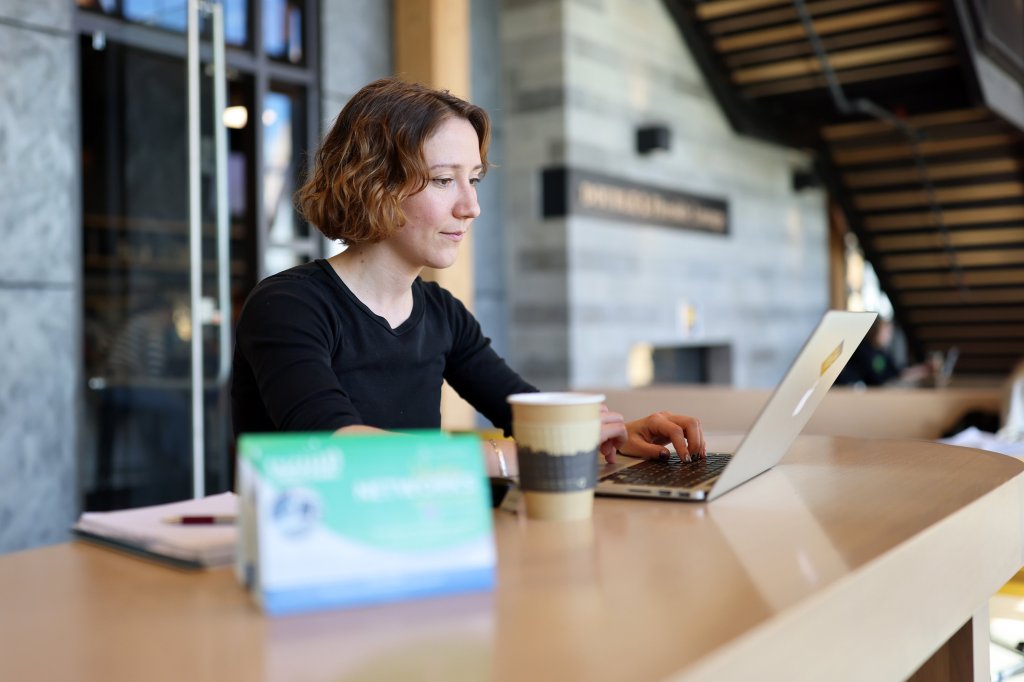
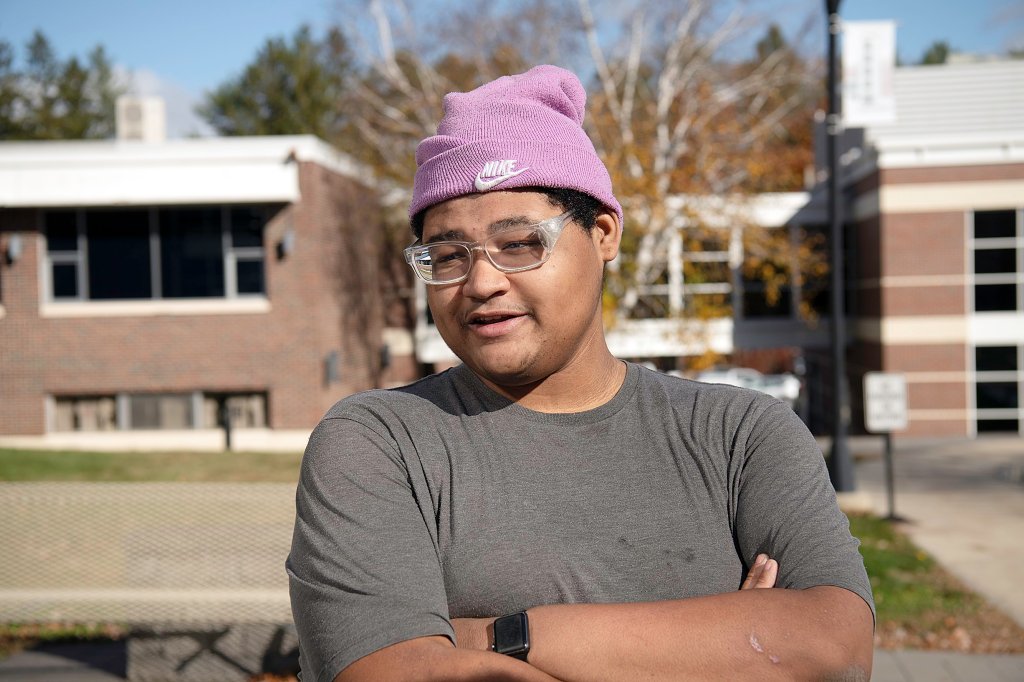
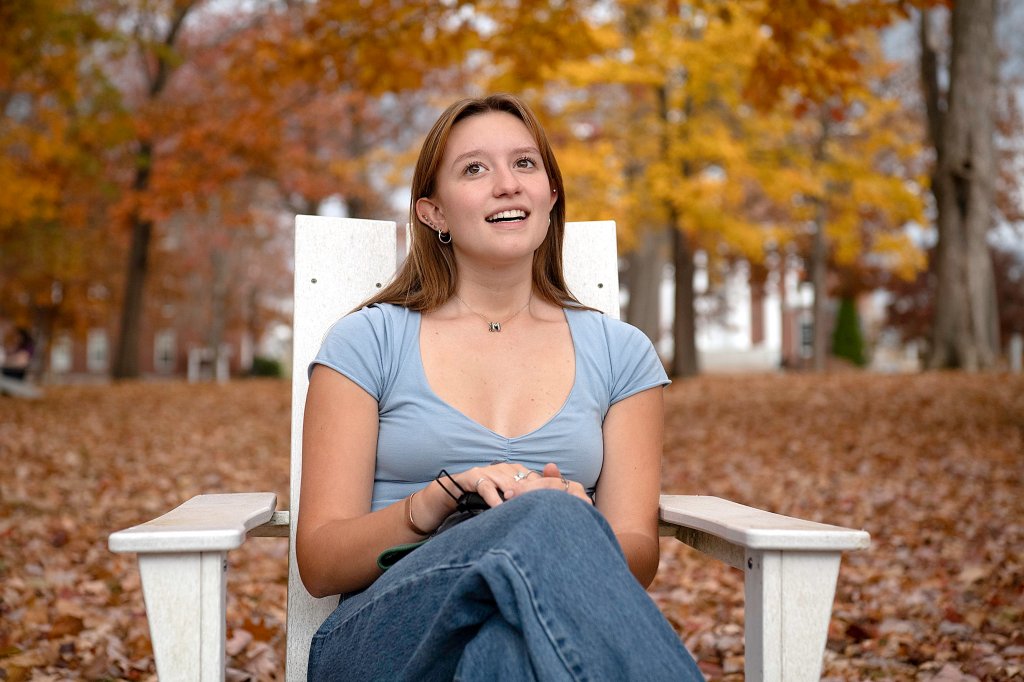
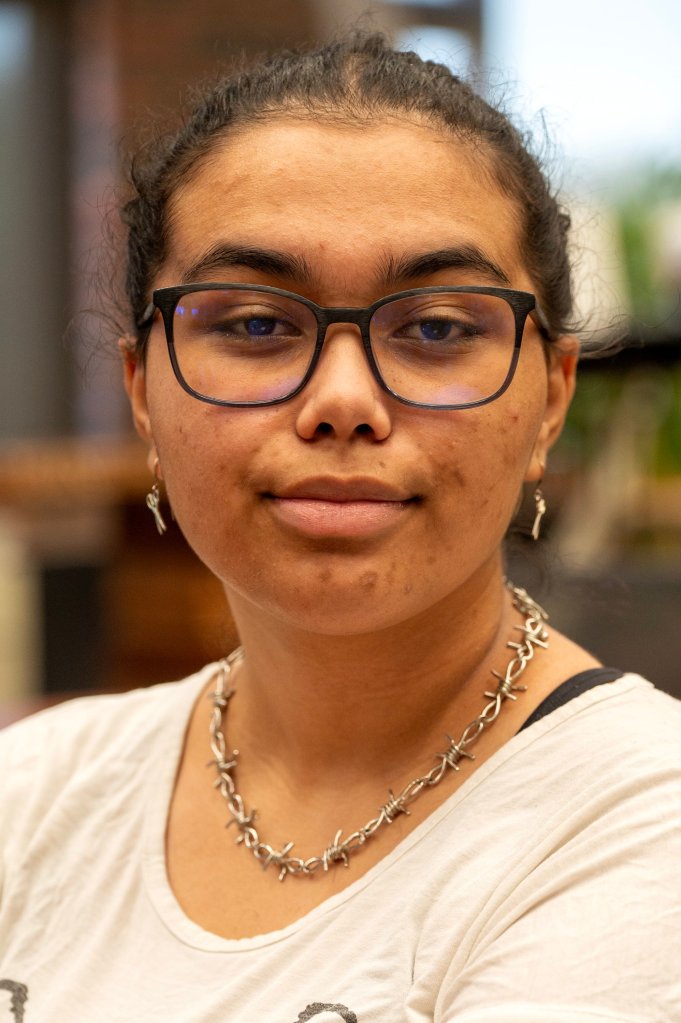
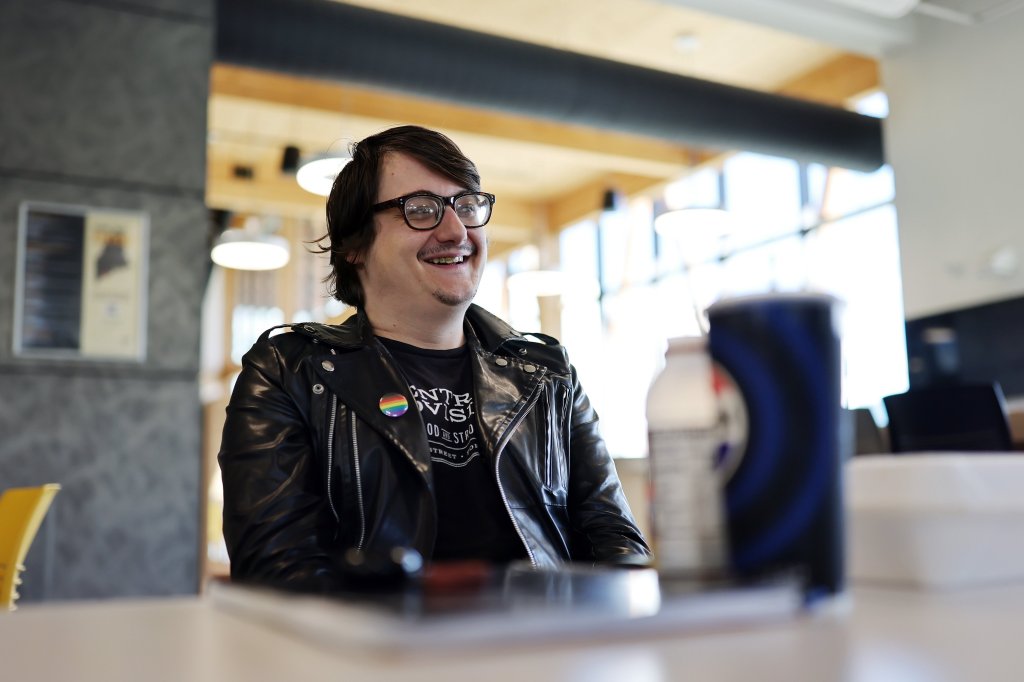
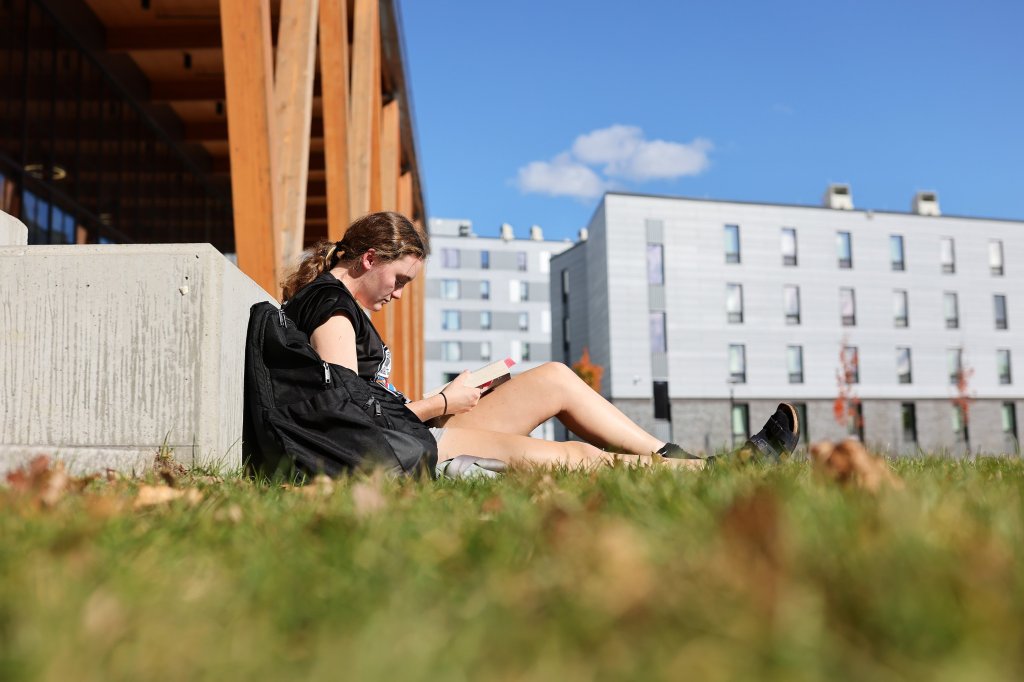
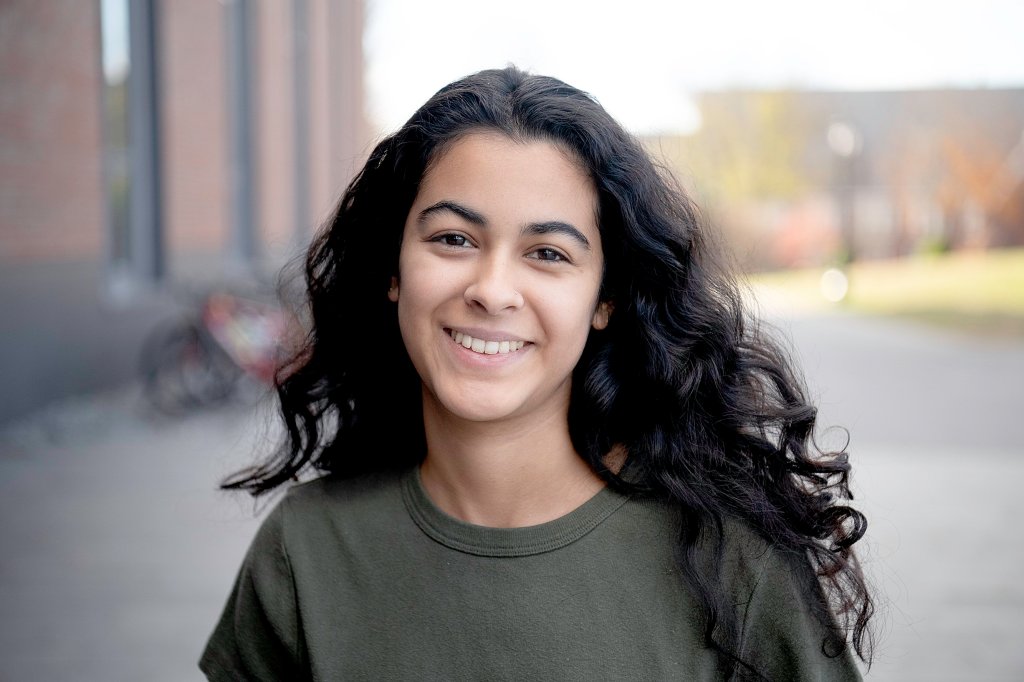

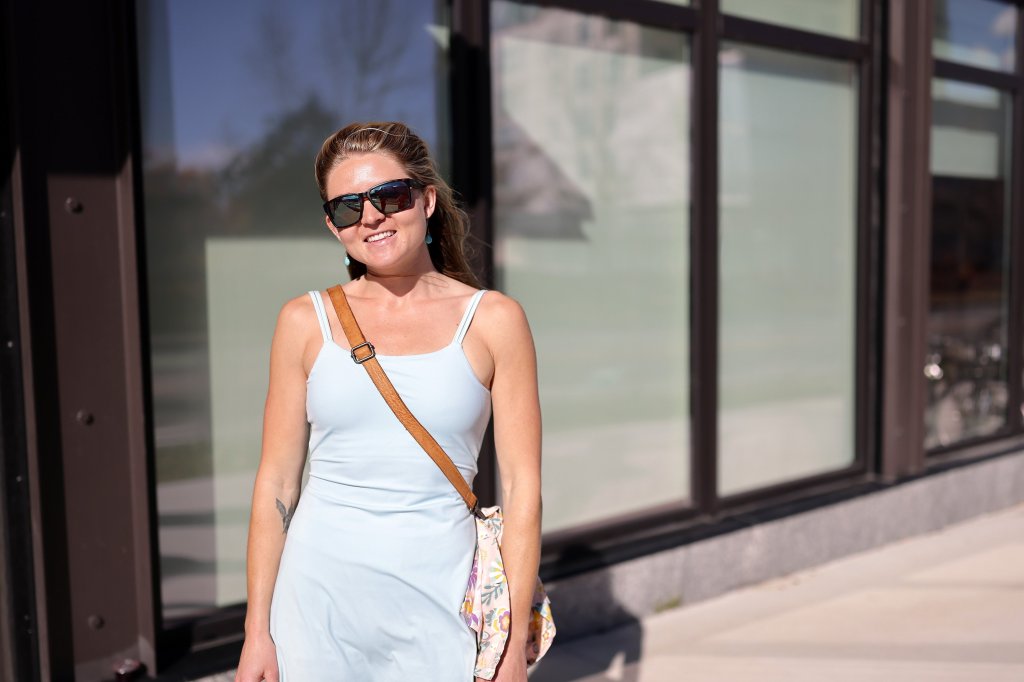
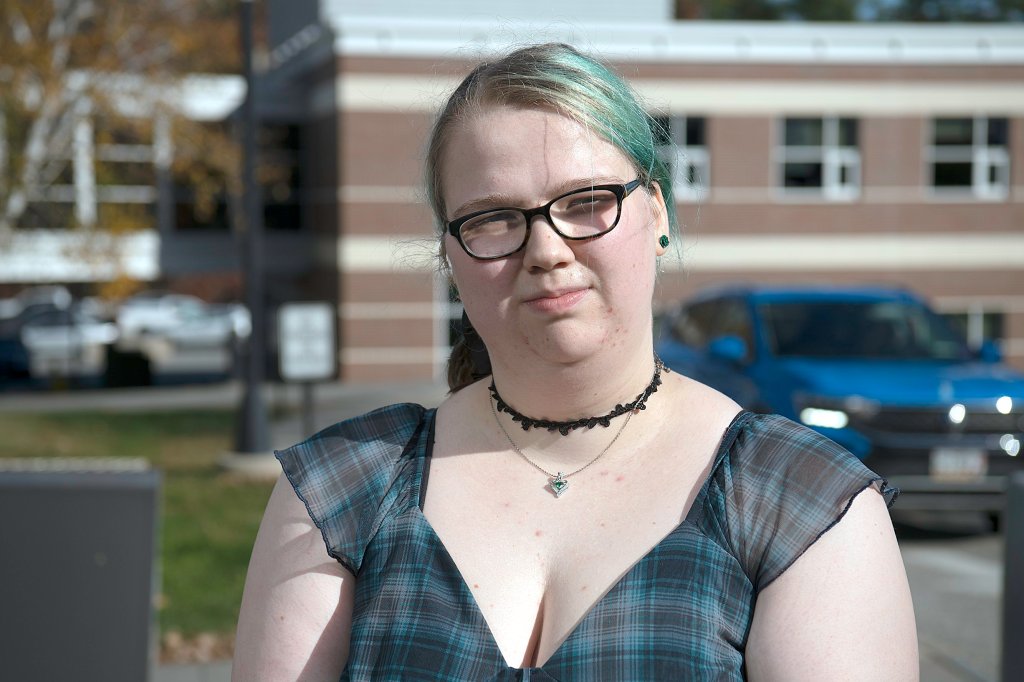
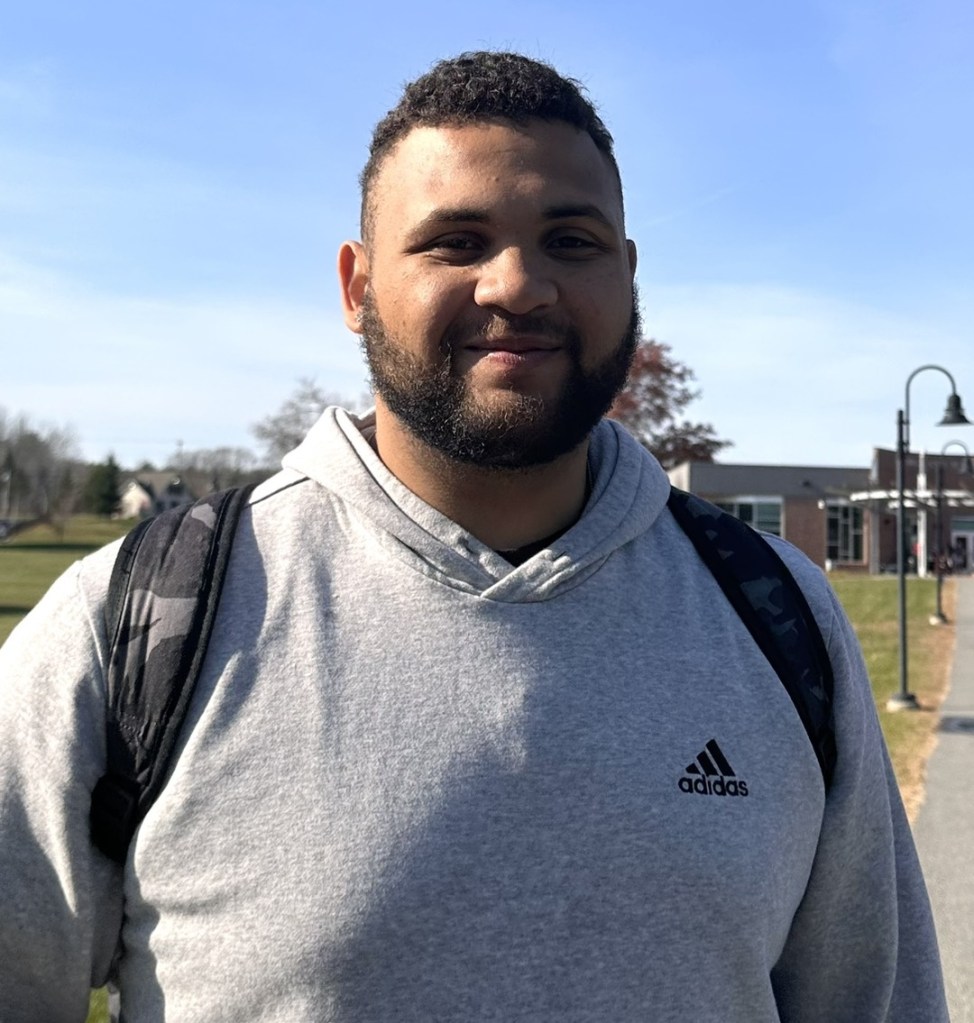
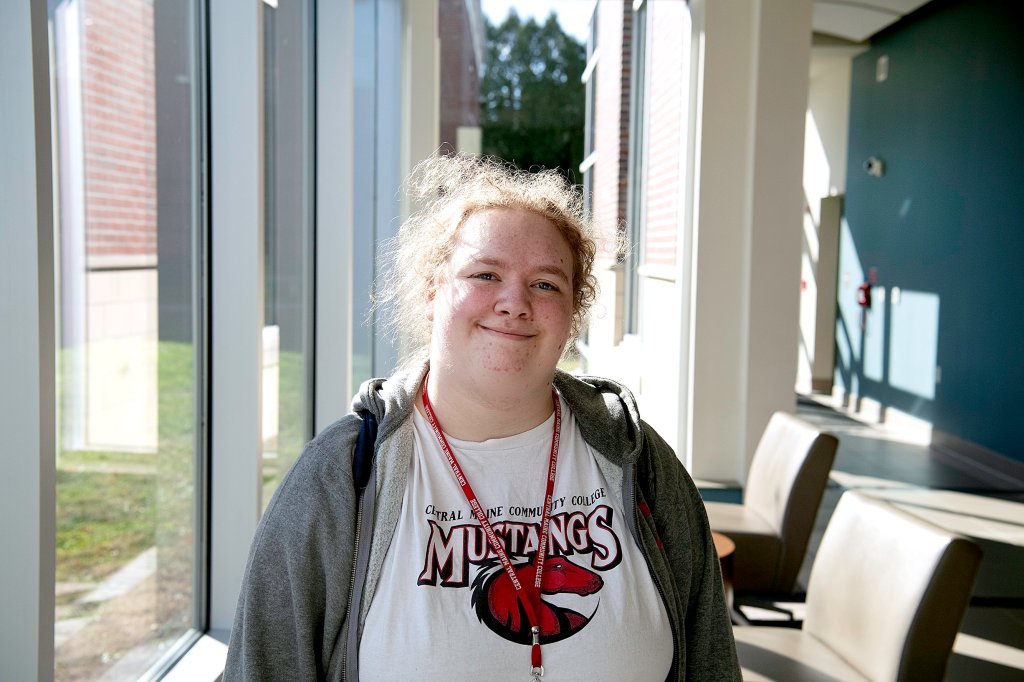

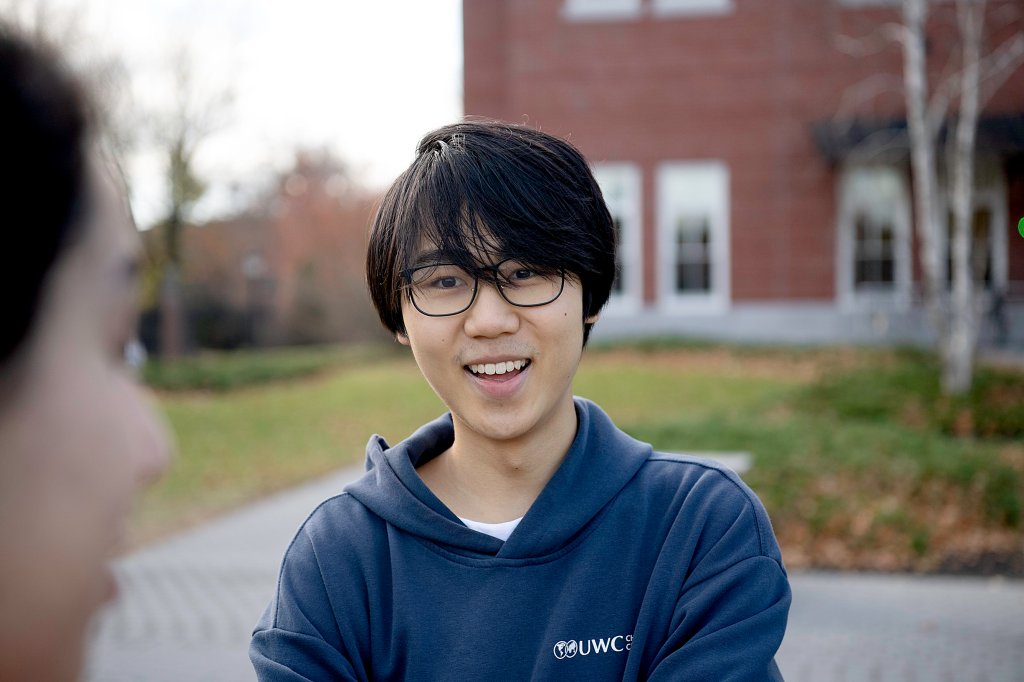

We invite you to add your comments. We encourage a thoughtful exchange of ideas and information on this website. By joining the conversation, you are agreeing to our commenting policy and terms of use. More information is found on our FAQs. You can modify your screen name here.
Comments are managed by our staff during regular business hours Monday through Friday as well as limited hours on Saturday and Sunday. Comments held for moderation outside of those hours may take longer to approve.
Join the Conversation
Please sign into your Sun Journal account to participate in conversations below. If you do not have an account, you can register or subscribe. Questions? Please see our FAQs.